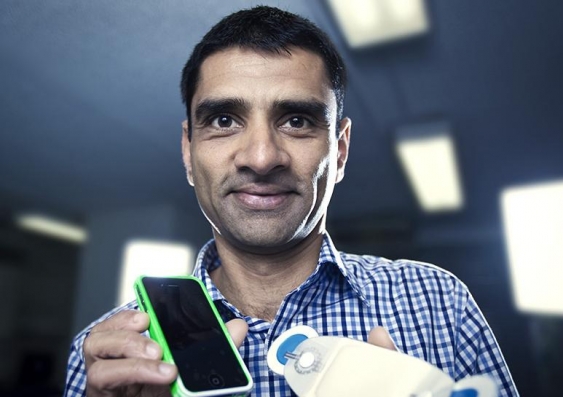Wearable technology may bring health data to doctors
Wearable consumer devices used to monitor health and fitness could become important sources of information for medical practitioners and insurance providers.
Wearable consumer devices used to monitor health and fitness could become important sources of information for medical practitioners and insurance providers.

Wearable consumer devices used to monitor health and fitness could become important sources of information for medical practitioners and insurance providers if a new project led by UNSW researchers is successful.
Popular wearable devices include Nike+, Fitbit and Jawbone UP, with heavyweights such as Google and Apple also making forays into the space.
Equipped with a three-year, $322,800 Australian Research Council (ARC) Discovery grant beginning in 2015, the UNSW engineers hope to make these devices secure and trusted enough to feed the information they collect into the mainstream health system.
This could allow doctors to monitor the health of patients in their own homes, or provide a greater level of detail to improve diagnosis and decision-making.
“Healthcare costs are ballooning in much of the western world, increasing the burden on primary care delivery, and exacerbating the occurrence of acute events requiring hospital care,” says Associate Professor Vijay Sivaraman from the School of Electrical Engineering and Telecommunications.
“A significant opportunity exists to curtail these growing demands on our healthcare system by engaging patients in at-home medical management using emerging wireless sensor technology.
“Secure, non-intrusive medical monitoring can offer quality-of-life for millions of patients with chronic conditions or age-related illnesses, while providing critical data for healthcare providers at dramatically reduced cost.”
The researchers are proposing a series of lightweight security enhancements to enable wearable devices to play a more critical role in health management.
“Security is a vital concern that needs to be solved in order for wearable healthcare devices to be deployed at large scale within the healthcare system,” says Professor Sanjay Jha, director of the Cyber Security and Privacy (CySPri) Laboratory at the School of Computer Science and Engineering. Jha is also deputy director of the Australian Centre for Cyber Security (ACCS) at UNSW.
According to Jha, encrypting information that is sent wirelessly from the wearable device is only the first step.
“If healthcare professionals and medical insurers are to trust the data coming from wearable devices, they also need to be confident that the provenance, namely the context – the person, time and place associated with the data – is genuine, that the device integrity has not been compromised by malware, and that the data has not been tampered in transit or storage,” he says.
“The outcome of this project is expected to be the development and demonstration of ultra-lightweight algorithms and mechanisms that execute in wearable devices to safeguard the integrity of the data.”
It is anticipated that the technology developed will work with existing wearable devices, making it simple for device makers to incorporate.
Media contact: Ry Crozier, UNSW Media Office | +612 9385 1933 | +61 425 245 887 | r.crozier@unsw.edu.au